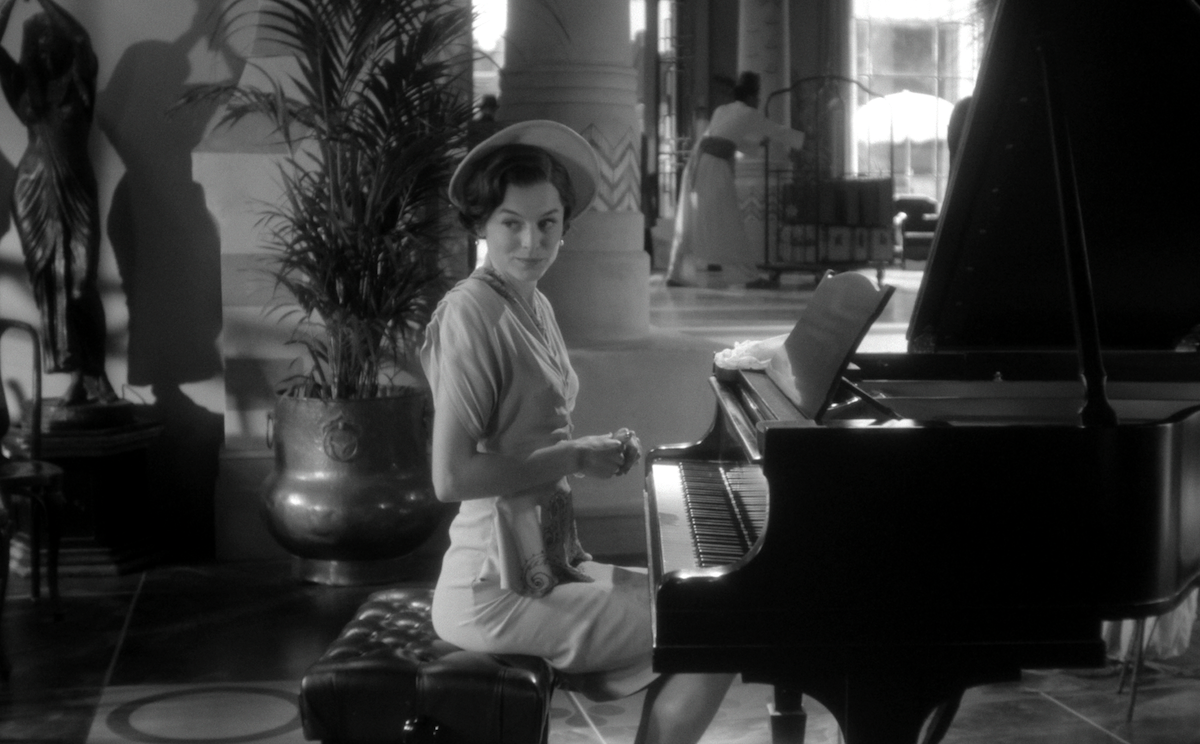Aren’t we already living in a “Black Mirror” universe?
I’m sure many who watched the latest season of the British dystopian fiction anthology series were thinking that same thing. With the sharp incline in artificial intelligence technology and generated images like celebrity deepfakes, it’s hard to distinguish reality in our new tech universe. When “Black Mirror” first aired in 2011, its sharp critique of society and technology seemed new. Now, the show’s universe seems more real than ever.
Series creator Charlie Brooker must have noticed the shifting zeitgeist — in the six-episode seventh season, technology is more advanced than ever before. In the season two episode, “Be Right Back,” AI merely creates an artificial version of a dead lover. But in the new season’s episode, “Hotel Reverie,” technology can create an entire world.
In “Hotel Reverie,” the actor Brandy (Issa Rae) is tired of producers typecasting her as a victim, so she signs up to play the male lead in a remake of an old romance movie. To cut down on costs, Brandy is transported into the world of the film itself — she acts alongside digital replicas of the original characters, such as the love interest Clara (Emma Corrin). But when Brandy accidentally calls Clara by her actor’s name, Dorothy Chambers, Clara assumes more of Dorothy’s memories, gaining more agency and becoming more life-like as a result.
After the managers running the simulation unexpectedly lose connection, freezing time in the digital world, Brandy and Dorothy fall into a months-long whirlwind romance. In this second act, Corrin gives a simply astonishing performance as Clara. Delivering old Hollywood beauty with an enchanting transatlantic accent, she captures Clara’s development as she gains consciousness and becomes self-aware. But any part of “Hotel Reverie” that doesn’t explore Clara’s consciousness feels uninspired and lifeless in comparison to Corrin’s beautiful acting.
Still, “Hotel Reverie” proves Brooker’s skill for exploring love in the digital age. In another episode, “Eulogy,” Phillip (Paul Giamatti), a lonely man, learns of his ex-girlfriend Carol’s death, and participates in a program that lets his memories be shown as photos and videos at her funeral. With the help of The Guide (Patsy Ferran), he steps into his troubled past through his memories.
When Phillip enters the photos, he sees a frozen tableau: a photograph in real life, with parts of bodies not facing the camera rendered with an impressive pixelated effect. For photos that Phillip destroyed out of rage, the physical effects are replicated in 3D. For a picture with Carol’s head punched out, her head in the simulation is replaced with a gaping hole and flaps of paper. Equally impressive as the visuals is the acting: Ferran embodies The Guide’s mysterious attitude, and Giamatti is heartbreaking as he slowly remembers more of his past flame. Brooker presents a wholly original view of humanity inside a technologically advanced world in “Eulogy,” making it a riveting watch.
But “Black Mirror” season seven is at its worst when he resorts to piggybacking on past ideas without offering new perspectives. The laziest episode is “USS Callister: Into Infinity,” which is the series’ first sequel episode. In the original, fan-favorite episode “USS Callister,” reclusive programmer Robert Daly (Jesse Plemons) uses digital cloning technology to upload his coworkers into a Star Trek-like video game environment. There, he can torture them to live out his space captain fantasies.
But “USS Callister: Into Infinity” doesn’t offer anything new from the original. It’s instead a generic space adventure story with eat-the-rich themes — nothing like the usually intriguing plots “Black Mirror” has. It’s a fun watch, with great visual design, but doesn’t offer much thought beyond what’s on the screen.
The fourth episode, “Plaything,” also pays homage to a previous “Black Mirror” installment. It follows Cameron Walker (Peter Capaldi), a video game journalist who becomes addicted to taking care of sentient digital creatures called Thronglets. “Plaything” is set in the same universe as “Bandersnatch,” the 2018 “Black Mirror” interactive film where viewers influenced the story directly. References to the film abound, the most significant of which is the character Colin Ritman (Will Poulter), an enigmatic game programmer from the 2018 installment.
But while “USS Callister: Into Infinity” doesn’t journey beyond the first installment, “Plaything” only teases us with easter eggs to “Bandersnatch,” and so manages to stand on its own. The script is a little weak — it’s a tried-and-true story where AI takes over humanity — but it’s Tamagotchi twist and director David Slade’s chaotic visual style make up for it.
Despite some nostalgic misfires, the newest season of “Black Mirror” still shows us how technology can amplify our love as well as our vices. Brooker’s newest collection of episodes proves that, despite the advancement of technology, there are still ways “Black Mirror” can freak us out, while also reminding us of our humanity.
Contact Ethan Li at [email protected].


























































































































































